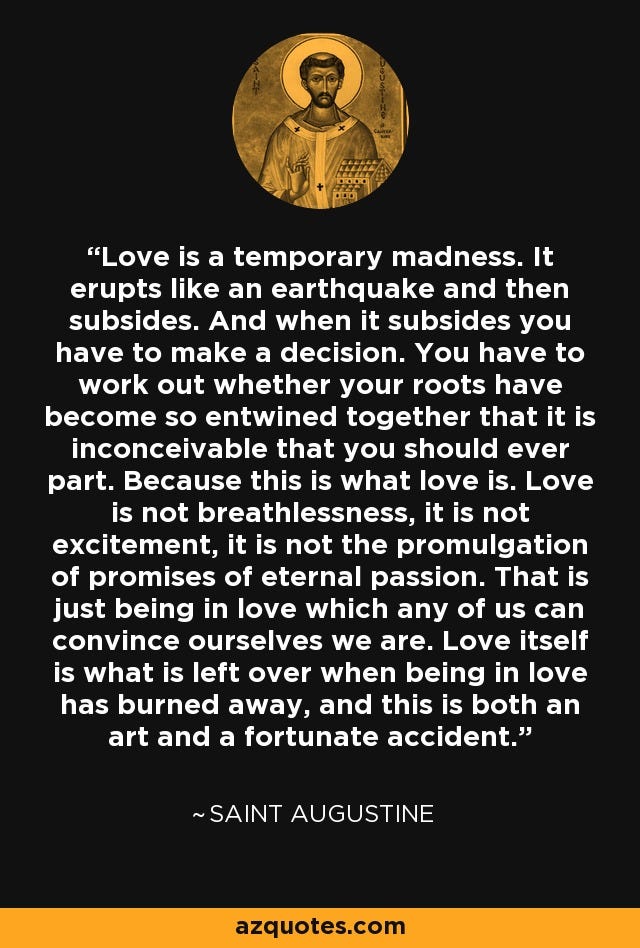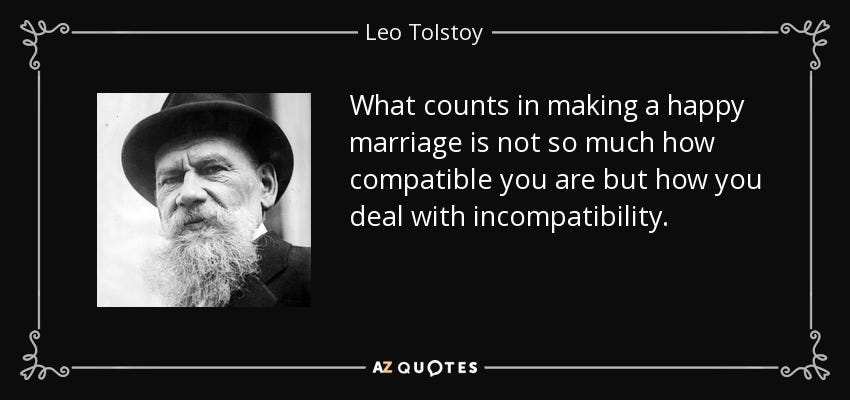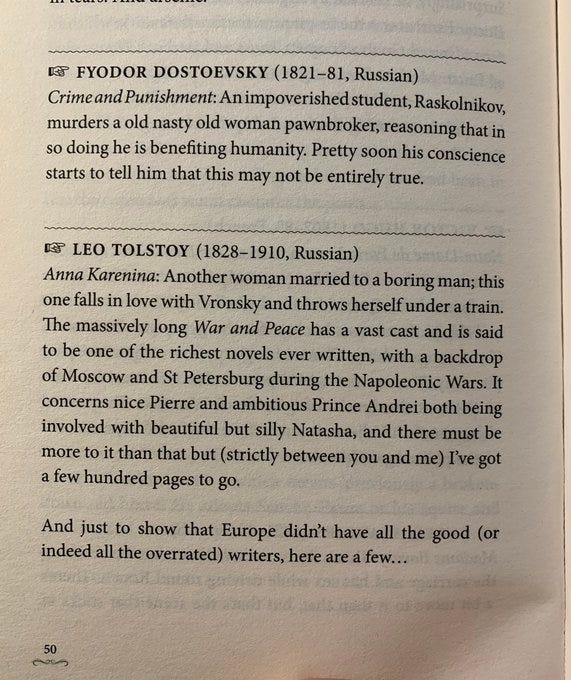“Nothing can make our life, or the lives of our beloved ones, more enjoyable than occasional shopping. I find shopping to be one of the most relaxing activities for human beings, along with escaping from the buzzing civilization.”
Leo Tolstoy, Mallorca Travel Notes, 1879
Modern man wants to appear intelligent, and publishing quotes is often a way to signal that. It's as if saying, “Look, Alan Watts and I agree on this idea. He's cool, the idea is cool, so therefore... I'm cool too.” :) There is nothing wrong with that in my book. Good, timely insight shared via citation is always appropriate. The trouble starts when the quotes are distorted or misattributed. It typically starts when one does not read the source of one's quotation in the first place.
Many graphical quotes are fake. In this case below, St. Augustine never said that; it is a quote from Captain Corelli's Mandolin by Louis de Bernières.
I realized that by accident, yet I believe it is hard to avoid feeling like 'what the hell did he just say?' Why would someone do that? I’m still puzzled. I once asked a guy on Twitter who posted this alleged quote of Francis of Assisi: “The only thing ever achieved in life without effort is failure”—why he did this, knowing that this banal phrase probably never came from the saint. He answered: “Putting his mega name behind it amplifies the message. It is a fantastic quote, regardless.”
Another one in this realm: Maximus the Confessor: “Theology without practice is the theology of demons.” I doubt he ever said that.
And this one is allegedly by Chesterton, not Tolstoy:
Do they think Tolstoy is cooler than Chesterton?
There are dedicated Twitter accounts that shamelessly publish true and false citations.
If you have read the novel War and Peace, you know that Vasily Kuragin, who said this phrase, is not the most pleasant character in the book. He wants to settle his children—his daughter in this case—through their marriages to relieve his financial burden. The idea that a young man needs the company of intelligent women is quite vulgar, after all. Attributing this quote to Tolstoy primarily discredits the person who cites it.
In the excerpt below, the character Father Zosima from The Brothers Karamazov quotes an “ironic saying” of someone he knew. Did Dostoevsky really think so himself? Who knows.
And this one is technically written by Dostoevsky. But out of context, it loses its meaning. Who said what to whom, under what circumstances, is important—what else that character said, etc., etc.
I had a funny—or perhaps scary—case, depending on how you look at it. I asked ChatGPT about the source of the quote above:
If you insist, ChatGPT can find the quote you mention in practically any book, making up a story filled with existing characters. It's an AI delirium.
On the other hand, some folks enjoy those quotes so much that they even pin them to their profile:
“She did worse than break the law, she broke the rules” Leo Tolstoy — Anna Karenina Tolstoy never said that, as you can imagine. It is a quote from a movie script.
People don’t care much whether what they quote is original — but I do. As you can imagine, Carl Jung (probably) never said this. If one day I find out that it is an original quote, I’ll apologize. But until then, it’s just a vulgar projection.
When in doubt, consult some good sources—or even better, read the originals.
Or you may end up in the situation mentioned below:
‘Pretty soon his conscience starts to tell him that this may not be entirely true.’














